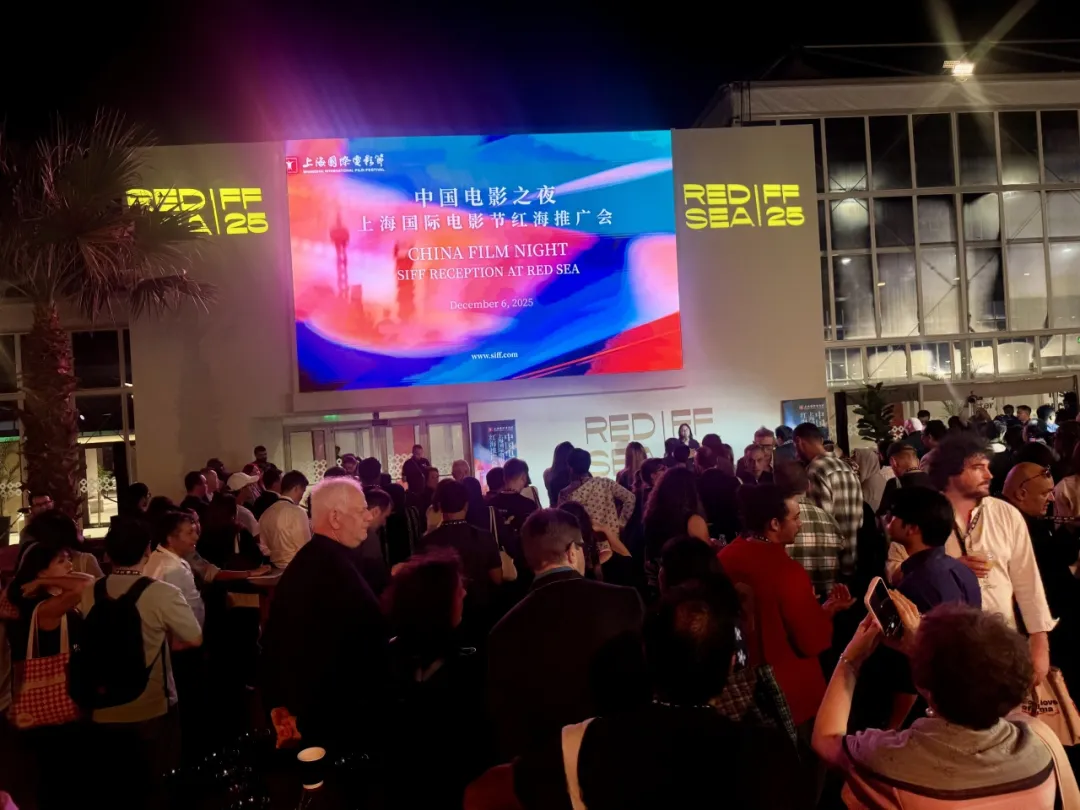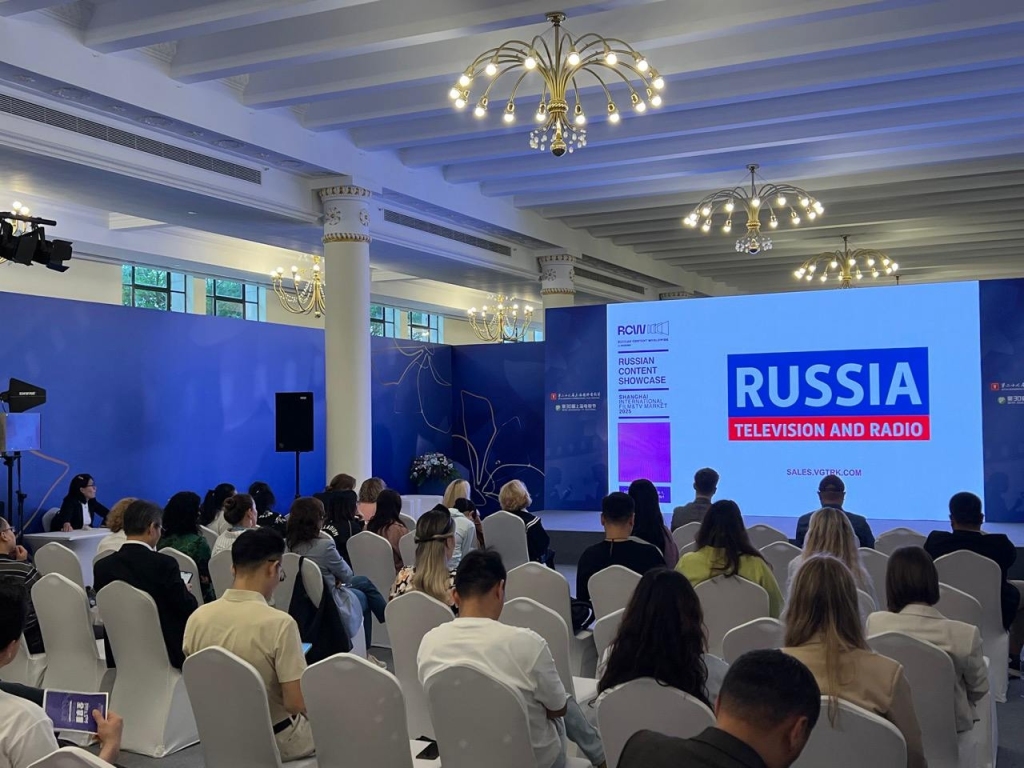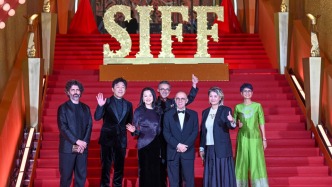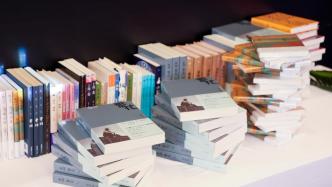
The adaptation of serious literature into film and television dramas has become a trend in recent years. For example, the just-aired "My Altay" is adapted from the novel of the same name by writer Li Juan, the previously popular "Flowers" is from the novel of the same name by writer Jin Yucheng, and the movie "The Mistake by the River" is from the novel of the same name by Yu Hua. Through the hands of outstanding screenwriters and directors, these novels grasped the core and were adapted into film and television works with a sense of depth and quality, triggering a nationwide craze for watching dramas and a "literary craze" to return to reading.
This also proves that IP literary adaptations are not limited to plot-heavy novels and stories. Different forms of literary works, especially serious literature, can bring depth and connotation to film and television works.
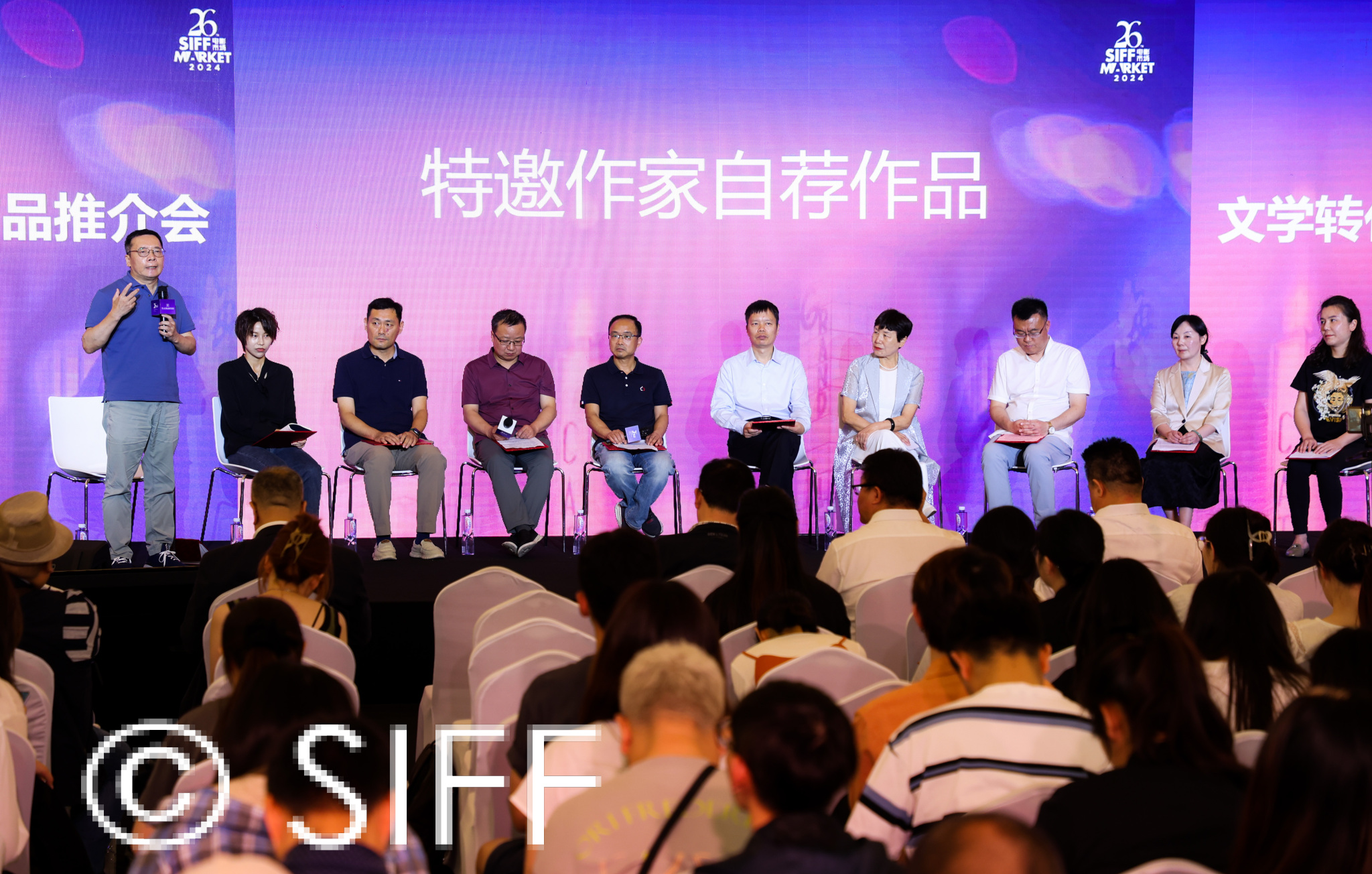
event site
In response to this trend, on the afternoon of June 18, the Chinese Writers Association, in conjunction with the Shanghai International Film Festival, held the IP Film and Television Development Conference: a promotion meeting for literary transformation of film and television works. Li Xiaodong, Director of the Social Liaison Department of the Chinese Writers Association, Ma Wenyun, Full-time Vice Chairman of the Party Committee of the Shanghai Writers Association, Liu Jianwei, President of the Chinese Text Copyright Association and former director of the Bayi Film Studio, Zhou Jiandong, Vice Chairman of the China Film Producers Association, Vice Chairman of the Shanghai Writers Association Chairman Sun Ganlu, Vice Chairman of the Shanghai Writers Association Yang Yang, Vice President of the Chinese Film and Literature Society Yu Fei, famous suspense writer and screenwriter Cai Jun, famous writer and screenwriter Hai Fei and others highlighted 10 works and their authors that are suitable for adaptation. Let’s discuss together the ideas of writers, the feelings of screenwriters in the process from literature to film and television, and how to better build this bridge.
How far is the distance between literature and film and television, writers and screenwriters?
Li Xiaodong, director of the Social Liaison Department of the Chinese Writers Association, said, "The history of film and television art has proven that literature is the foundation and guarantee of the depth and thickness of film and television works. Only by returning film and television art to literature can film and television works have eternal vitality and immortal artistic value."
Yang Yang, vice chairman of the Shanghai Writers Association, first poured cold water on the craze for literary adaptations, saying, "A literary masterpiece may not necessarily become a popular movie. The leap between different categories of art may be accidental. An excellent novel does not necessarily have a direct line.”
Yang Yang shared that some people have suggested that the relationship between film and literature is equivalent to a scaffolding. When a film is made, the scaffolding is completely dismantled and formed into a fixed form. But he doesn’t quite agree with this view. “Tolstoy’s War and Peace and Anna Karenina will be filmed in a few years, which shows that this scaffolding cannot be dismantled, so there is a huge gap between the world of film and literature. , I think it’s a bit like a relay race, literature creates a form, creates a content, creates an imagination, and triggers the expression that many filmmakers hope to have.”
If there is such a distance between literature and film, can the transition between writers and screenwriters be smooth? Screenwriter Yu Fei said that from his experience, there are three key points in adapting a literary work. First, ensure sufficient information when adapting, and fill in the gaps through interviews and data collection. The second is to learn to turn reality into reality, "it must be concrete, not ambiguous, and have concrete film and television scenes." Finally, there is the process of commercialization, which is also accompanied by the clarification of the theme, "whether it is family love or brotherhood, The theme and values must be clear and in line with mainstream values.”
Regarding the relationship between writers and film and television, he advocates keeping a distance. Writers should still maintain their creative enthusiasm, personal style and creativity and avoid being influenced by market trends.
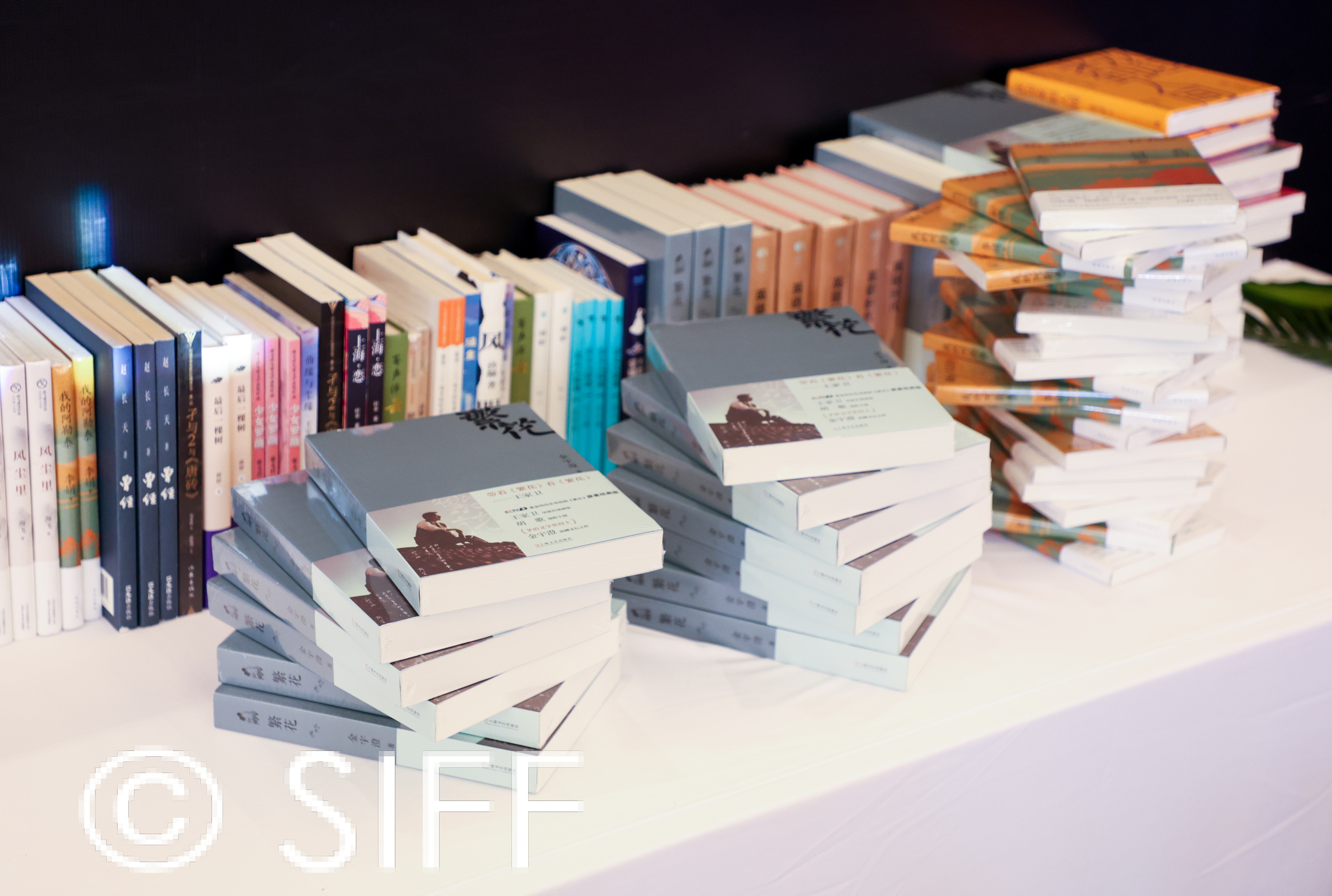
event site
From writer to director, talk about adaptation experience
At the promotion meeting, a roundtable discussion on the relationship between literature and film and television adaptations was also held. Front-line participants in the industry jointly expressed their opinions on their own experiences and suggestions for writers.
Hai Fei is a representative who has gone from being a writer to a screenwriter. He is famous for his espionage genre in the field of screenwriting. He believes that the literary nature of a work does not refer to the literary nature of the language, but the literary nature of the story itself. "Four Great classics must be adapted continuously if their stories are literary." Haifei shared his experience: "In my more than ten years of film and television adaptation, if the story cannot be told in three minutes, then it is not good. It’s a good story.” He also believes that digging out stories from the gaps in history, especially in the costume genre, is a direction with great potential.
Speaking of subject matter, Cai Jun, as a domestic writer who has been exposed to IP adaptation for a long time, shared his experience that there are two types of works suitable for adaptation: one is that the text structure itself is suitable for adaptation, and the other is that the work can provide a possibility. Adaptation is difficult, but this possibility extends a new textual expression.
He also pointed out that the success of the adaptation not only depends on the work itself, but is also subject to many other factors. "When I participated in the Shanghai International Film Festival Venture Capital in 2021, there was an original movie script that could not be filmed because the entire content was in Japan. As a result, it has not been able to be filmed so far. Shooting." Although his own movie adaptation of a novel has been officially announced and the actors have been finalized, it still faces a long post-production and review process, "so it sometimes depends on a lot of luck."
Liu Jianwei, President of the Chinese Text Copyright Association, pointed out that Shanghai’s audiences and readers are very happy to have access to works such as "Flowers" that truly reproduce the Shanghai street scenes of the 1980s and 1990s. However, most film and television works now avoid real locations, "No I don’t know since when, except for those about Shanghai, all novels and movies in any place have been given pseudonyms. For example, "Crazy" can only be said to be from a place in Guangdong. Pig's trotter rice is famous and so popular, but it cannot be "The World" doesn't mention Harbin when it comes to where this story takes place, but when it comes to St. Petersburg, everyone will say which street in Pushkin's work he drank coffee on. "He believes that literature is the most important. The standard is authenticity. "If we break down the joys and sorrows of life, old age, illness, and death, we can tell it in pieces. Authenticity can bring a high degree of literary quality. Whether it is a novel or a film, it is the most important."
He also mentioned that classic literary works occupy an important position in film and television adaptations. "Of the eight classic films directed by Xie Jin, six were adapted from first-class writers and first-class literary works of the same era or previous eras. From a global perspective, " Works such as "The Shawshank Redemption" and "The Godfather" are classic American documentary novels. "He believes that this reflects the power of literature.
Yang Rui, a teacher at the Beijing Film Academy, studies the archetypal narrative of movies. “Human beings have some common joys and sorrows that have not fundamentally changed. Classic literary works study the common joys and sorrows of mankind. What we are looking for is that all human beings can Things you can understand. "The Wandering Earth" by Liu Cixin, once it is transformed into science fiction, it is a typical disaster narrative. "
However, for young writers, Yang Rui believes that although IP adaptation is the current trend, film and television after all have their own language logic, which is completely different from literature. The adapted work itself can be different from the literary style, so writers should still grasp the core of their own literature. Once it is solidified according to film and television works and genre works, it will lose the charm of literature itself.
Zhong Qiushi, editor-in-chief and writer of "Jiangnan" magazine, proposed from the audience's perspective that the change in the relationship between literature and film and television may be due to the decline in audience aesthetics. "After taking the box office as an indicator, films with artistic and highly spiritual connotations are still not enough."
From this perspective, adding IP adaptation to more literature, especially serious literature, may be able to cultivate audiences who pursue aesthetic tastes in literature, artistic height, literary connotation, and the inner spiritual world. “In this sense, our literary novels are responsible."
Zhong Qiushi mentioned that he had participated in some adaptation projects and found that the current gap between literature and film and television may not be a problem of capital, but the lack of literary planners or screenwriters who understand novels and art. I haven’t read the novels, I just have a bit of information to deal with, but I don’t have a deep understanding of these works.”
[Key recommendations for literary works]
"Kuncheng in the Universe" Zhong Qiushi
It tells the story of two protagonists, Zhang Wujie and Xu Conglan, who set out from Kuncheng, a small town in China, and went through studying abroad, working, and finally living in the United States.
Duan Ziqi of "Chongqing Synecdoche"
The protagonist is an unemployed reporter. Through an email in the maze-like city of Chongqing, he discovered that time lens technology may really exist. In the gaps between time and space, he constantly switched consciousness, experienced different lives and time and space, and... The combination of personal emotions and grand concepts of time and space creates a real and dreamy narrative world.
"The Banquet" Ye Xiao
The protagonist enters the dinner party through a social software, and through each dinner party, the richness and diversity of Chinese cuisine is presented. The dinner party is the climax, connecting all the characters together and revealing the various tastes of life.
"Digging" Relaxation
The novel tells the story of the criminal police team's pursuit of a suspect named "Zhuang Zhuang". It shows the challenges, frustrations and persistence of the police when facing complex cases, as well as the emotional entanglement between them and the suspects and the victims' families. It also reveals It reflects the hardship and helplessness of people at the bottom of society.
"Dear Tenants" Gao Wengao
A non-fiction work based on the daily life of the author and his tenants. In the autumn and winter of 2018, the author decided to record the daily life with the tenants. The work is based on real life and shows the living conditions of ordinary people in contemporary society. and the brilliance of humanity.
"The Surge of Zaire" Cai Xiao
The novel is based on the "6·12" incident in 2014. It tells the story of Yang Zhou, as the general manager of Huatong's overseas market department, how he organized rescue, dealt with the aftermath, and communicated with the local government and the Chinese Embassy after the attack on the construction site. A story of collaboration.
"The Red Sarilang" by Li Yuqin
Based on the Ulan Muqi team of Wengniute Banner and the Ulan Muqi team of Chifeng City, it tells the story of the Ulan Muqi team from the 1960s to the 1980s, who braved hardships and went deep into pastoral areas to convey the party's voice and care. touching story.
"Five Tiger Craftsmen" Yang Mingyuan
The novel depicts the legendary stories of five outstanding handicraftsmen in Shandong from 1906 to 1916 - the chicken griller, the shadow puppet maker, the blacksmith, the seasoning maker, and the beemaker. It spans Jinan, Beijing, Quanzhou, Suzhou, Jiaxing and other cities, and writes about the urban life. , traditional skills, various folk customs, and chivalrous feelings.
"Flying Bench Dragon" Wang Yun
This is a novel that depicts the integration of Chinese rural tradition and modern life. The story unfolds from the perspective of a little boy and tells his experience of spending the Spring Festival at his grandfather's house.
"Kaiyuan Colorful House: Wind Sequence" Li Sha
This is a martial arts story that took place in the Kaiyuan era of the prosperous Tang Dynasty. It is full of suspense and intrigue. It tells the story of the death of Jin Wuwei in the palace of Princess Yuequan. Shen Shengyi is known to be not the real culprit, but his colleagues, His superiors easily pushed him out and gave him an explanation. The author Li Sha expressed her understanding of "Xia" through this story.
